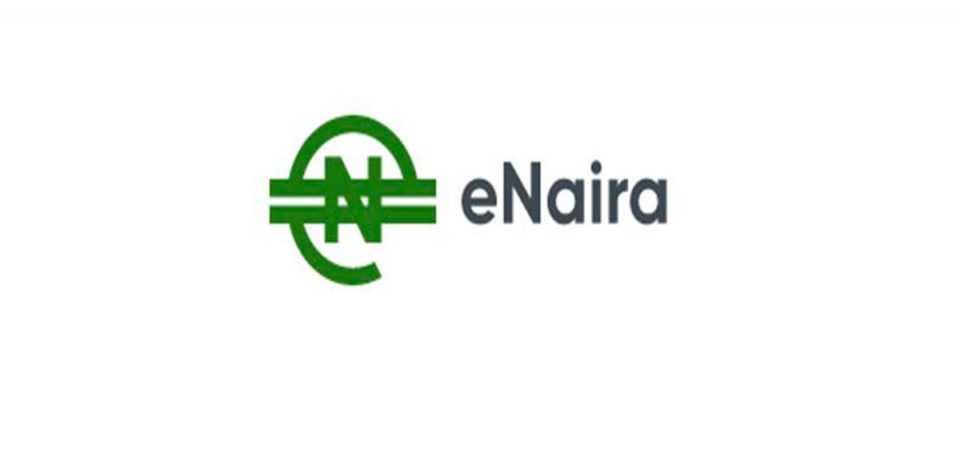- Operators differ on benefits of new scheme, urge FG to strengthen Naira
Nigeria’s hydra-headed challenges including smartphone affordability, network hitches and low awareness appear to weaken the adoption of eNaira in the country.
With many Nigerians already onboard similar fintech applications that offer similar services like the e-naira, there are concerns about competition from the private sector.
With the launch of the eNaira on Monday in Abuja, by President Muhammdu Buhari, Nigeria joined Bahamas, Sweden, Cambodia and South Korea as nations that are now on the global Central Bank Digital Currency (CBDC) tracking map.
President Buhari projected that in the next 10 years, eNaira should boost the country’s Gross Domestic Product (GDP) by $29 billion.
With eNaira powered by availability of networks and smartphones, stakeholders are worried that these requirements and low awareness may hinder the adoption of the initiative in the country.
In Nigeria, network penetration is still largely 2G and 3G dependent, but there have been massive investments in 4G and the country is hoping to commercially launch 5G by January 2022. However, on 2G, 3G and even 4G, there are several complaints around the quality of service offered by operators. This challenge is seen as a major limitation that could hinder the success of eNaira.
Besides, with the majority of Nigerians battling low per capita income as a result of slow-paced recovery of the economy, purchase of smartphones might be jettisoned for more pressing needs.
Already, a report by Alliance for Affordable Internet (A4AI) revealed that though smartphones provide access to life-saving information, enable students to continue their studies online, and foster social connection, they remain unattainable for many around the world due to high costs.
With a study of 187 countries, A4AI found that the global average cost of a smartphone is around 26 per cent of an average monthly income, $104. However, there are significant divisions in affordability between regions and countries that suggest smartphones remain inaccessible to many.
Specifically, A4AI, which is a global coalition working to drive down the cost of Internet access in low- and middle-income countries of the world, said in countries like Nigeria, South Africa, Kenya, the people pay 45 per cent of their monthly income to purchase smartphones.
The 45 per cent is as a result of devaluation and inflation witnessed in the economies. Further, so many people are not yet aware of the eNaira initiative, especially among the artisans and others. Some see the initiative as very elitist, that it is meant for the very rich in the society.
Speaking with The Guardian, the Nigerian Coordinator, A4AI, Olusola Teniola, said the Federal Government would require further investments in educating the masses, an increase in the adoption of smartphone devices, an improvement in digital literacy and massive digital infrastructure deployment to fill the dark spots where many Nigerians in their millions are not able to afford access to the Internet, have no power to charge their mobile devices and require financial stimulus to be able to support themselves to be able to fund the usage of these eWallets whether by data or USSD charges that will be applied when they are being used to send or transfer payments.
Teniola, a former president, Association of Telecommunications Operators of Nigeria (ATCON) said the eNaira launch revealed the latest in a number of digital service initiatives that FG introduced to the public since 2018 that should enable a Digital Economy that is still evolving.
According to him, the eNaira made reference to social interventions and efficiencies in digital payments using CBN’ CBDC.
“This was mentioned as a journey by the CBN Governor and recognised by our President that it will be closely monitored. It is now for FG to educate the masses that the eNaira targets for it to gain any mass appeal and acceptability,” he stated.
On its possible impact on the economy, Teniola said it is hard to see how the launch of a digital currency can boost an economy when essentially it represents a digital form of paper currency.
He explained that the boost to the economy will come from increased exports outside oil and “that really is the human talent that should be harnessed for the potential skills in STEM and knowledge society.
“FG needs to put in place a conducive environment to enable the establishment of digital skills, digital jobs and digital services and products that the youth can export. These will boost our economy and diversify it away from being a mono-product economy that it still essentially is.”
From his perspective, a business merchant and Crypto currency dealer, Uche Nwosu, said that floating the eNaira by the apex bank is not what is needed presently to boost their businesses.
According to him, business operators are interested in measures that would urgently strengthen the Naira and make it regain its value in a sustainable basis.
He said this could only be achieved by prioritising infrastructure development and backward integration to boost export, reduce cost and inflation.
In addition, he said people are sceptical about embracing digital solutions in Nigeria due to the nation’s slow digital connectivity and network issues.
Another business operator, Emeka Maduka said the scheme is a good step in the right direction because that is the direction the global economy is moving. It would also enhance easy trading and settlements.
However, he pointed out that there is little understanding on the operations of the initiative, urging the CBN to develop a framework that would address the gap, considering the high level of digital illiteracy in Nigeria.
According to him, if these issues are addressed, it would attract more unbanked Nigerians into the scheme and boost financial inclusion.




